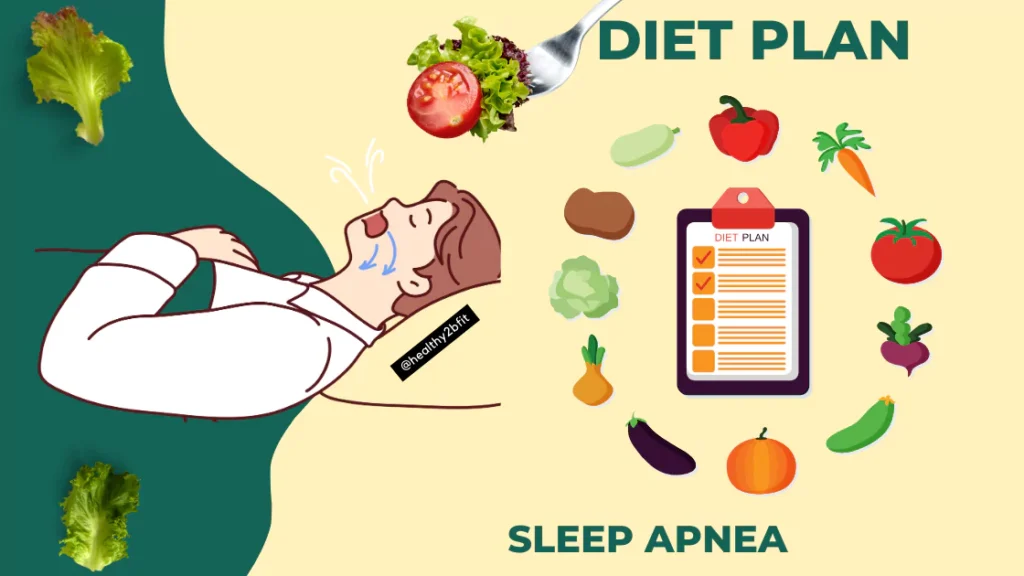Diet Plan for Obstructive Sleep Apnea
Prevent Obstructive Sleep Apnea with a Customized Diet Plan
Get a complete nutrition plan to Improve Sleep Quality and manage sleep apnea
Our diet plans focus on foods that support weight management and help alleviate symptoms of obstructive sleep apnea.
The Importance of Diet in Managing Obstructive Sleep Apnea
Obstructive Sleep Apnea (OSA) can disrupt sleep and impact your health significantly.With the right diet, you can effectively alleviate symptoms of sleep apnea.
At Healthy2Bfit, we specialize in making diet plans for OSA patients to help you improve respiratory health and lose weight.
Benefits of Our Obstructive Sleep Apnea Diet Plans

Weight Management
Helps in losing weight, which is the first step to managing OSA symptoms.

Respiratory Support
Includes foods that support the lungs and respiratory health.

Personalized Plans
Diet plans tailored to your physical conditions and food preferences.

Expert Guidance
Advice from dieticians experienced in managing obstructive sleep apnea.
How Our Obstructive Sleep Apnea Diet Program Works

Initial Consultation
Discuss your health, sleep problems, and food preferences with our dieticians.

Customized Diet Plan
Receive a diet plan focused on foods that help manage obstructive sleep apnea.

Regular Follow-ups
Continuous support and adjustments to your diet plan.

Lifestyle Tips
Guidance on lifestyle changes that will further improve your sleep quality.
Sample Obstructive Sleep Apnea Diet Plan
Day 1 Example:
Breakfast : Ragi idli with coconut chutney.
Mid-Morning Snack : A handful of almonds and a glass of fresh fruit juice.
Lunch : Brown rice with mixed vegetable curry and a side of spinach dal.
Evening Snack : A bowl of fruit salad with a dash of lemon juice.
Dinner : Grilled fish with quinoa and steamed broccoli (Vegetarian option: Grilled paneer with quinoa and steamed broccoli).
Note: Each diet plan is customized to meet your specific health needs. Connect with us on Instagram now!

Success Stories from Our Clients

Neeraj Sharma

Roop Matharoo

Rajni Kamboj

Pooja Mahajan

Lakhwinder kaur

Kirti Wandile-Chandankhede

Gurpreet Ghumaan

Daman Bindra
Improve Your Sleep Apnea with a Customized Diet Plan
Get Your Personalized Diet Plan Now
Sleep better and manage OSA symptoms with our expert diet plans.
Book Appointment Contact UsFrequently Asked Questions
Yes, a proper diet can aid in weight management and respiratory health, which may help reduce symptoms of obstructive sleep apnea.
Our diet plans include foods that promote weight loss and support overall health, tailored to your preferences.
Your diet plan will be reviewed and updated regularly based on your progress and any changes in your condition.
Yes, we provide guidance on foods to avoid that may exacerbate OSA symptoms or contribute to weight gain.

